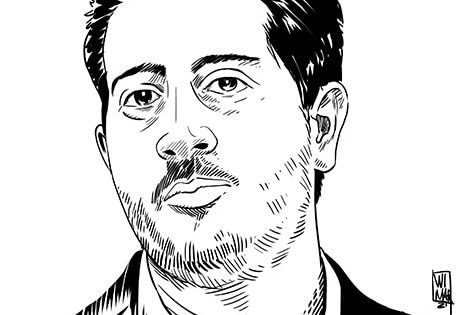(RSF/IFEX) – RSF condemns the detention of journalist Ramón Velázquez Toranso of the independent news agency Libertad, who has been held in the provincial prison in the eastern province of Las Tunas since his arrest on 23 January 2007. Velázquez Toranso initiated a hunger strike on 30 January. Around 40 journalists have been detained, attacked […]
(RSF/IFEX) – RSF condemns the detention of journalist Ramón Velázquez Toranso of the independent news agency Libertad, who has been held in the provincial prison in the eastern province of Las Tunas since his arrest on 23 January 2007. Velázquez Toranso initiated a hunger strike on 30 January.
Around 40 journalists have been detained, attacked or threatened, some of them several times, since Raúl Castro took over as acting president on 31 July 2006.
“The occasional hint of an opening under Raúl Castro’s interim regime has not been translated into any progress in press freedom,” RSF said. “Independent journalists continue to be subjected to harassment and violence by State Security. All Velázquez did was peacefully demonstrate for more freedom of expression.”
RSF added: “Do the authorities seriously think they can bring about a rapprochement with the international community while persisting in such intransigence and arbitrary actions? They have everything to gain by freeing prisoners of conscience.”
Velázquez Toranso was arrested with his wife and daughter at the bus station in the central city of Ciego de Ávila on 23 January. His family had launched a “March for Unity” between Las Tunas and Havana on 10 December 2006, to press for the respect of basic freedoms. Velázquez Toranso, his family and other marchers were first briefly arrested on 4 January 2007 in Ciego de Ávila. Sent back to Las Tunas, he was intercepted again the next day as he tried to reinitiate the peaceful march in the central city of Camagüey.
Harassed for months by State Security (the political police), Velázquez Toranso was sentenced to three years of probation by the Las Tunas provincial court as a “pre-criminal danger to society.”
His wife and daughter were released on 23 January, but Velázquez Toranso was held at a National Police unit in Las Tunas and was then transferred to the “El Típico” provincial prison, where he began his hunger strike on 30 January. State Security has told his family he will not be allowed visits as long as he continues the hunger strike.
Velázquez Toranso works for the Las Tunas-based Libertad news agency, whose founder and editor, José Luis García Paneque, has been serving a 24-year prison sentence since his arrest in the March 2003 “Black Spring” crackdown.
The editor of the La Voz de Oriente independent news agency, Haydee Rodríguez, also began a hunger strike after a heavy-handed raid on her home in the southeastern city of Santiago de Cuba on 20 January, in which State Security agents confiscated books, magazines and pencils that she had been planning to deliver to an independent library. Captain Giovanis Durán also seized recording equipment, two radio sets and documents from the European Union that Rodríguez, a Spanish citizen, regularly receives.
The website Payolibre has reported that Luis Esteban Espinosa Echemendía, 20, of the Jóvenes sin Censura independent news agency, was arrested in an aggressive manner on 29 January in Ciego de Ávila by José Mariño, the State Security provincial head of counter-espionage. Espinosa was questioned at the police station and his journalistic equipment was confiscated.
Espinosa had previously been detained for two hours by State Security on 10 January. The State Security ransacked the home of another Jóvenes sin Censura journalist, Yosvani Anzardo Hernández, in an unsuccessful search for “enemy propaganda” on 2 February.
Meanwhile, the Camagüey provincial court decided on 24 January to postpone the trial of independent journalist Armando Betancourt, 44, until 8 February. Betancourt has been held without trial since 23 May. His wife, Mercedes Boudet, who is herself being threatened with arrest, said he is being held for “anti-government activities” although he could end up being convicted of a non-political offence.


